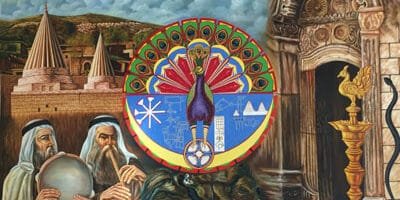Last year in Mombasa, Kenya’s most socially conservative city, a new lesbian, gay, bisexual and transsexual (LGBT) group was formed to provide psycho-social and health support to their often repressed community. It calls itself PEMA, which means “place of solace” in kiSwahili, the national language.
From HIV/AIDS awareness to feeding programmes, PEMA is determined to gain acceptance and tolerance for Kenya’s LGBT community. Through their monthly “gay parties,” they help the LGBT community network and, as Erica, a PEMA member, says, “let loose.”
In a society where homosexuality is punishable by a jail sentence (and informally by death or stoning), PEMA is making a daring move against the status quo. “Erica” has begun speaking on the radio about her experiences as a lesbian in Kenya. She does not dare reveal her identity, however. She described returning to her office after one radio show to find coworkers talking about the audacity of speaking out on a taboo subject. However, she believes that only by telling people publicly about homosexuality can she help dismantle the many barriers her community faces.
Hatred towards the LGBT community in Kenyan has been fostered primarily by strict Christian and Muslim views of homosexuality as an abomination. There are also claim that it was introduced by Westerners and is therefore something that one adopts culturally in cities like Mombasa and Nairobi, where there is a high concentration of Westerners.
Few in Kenya understand the biological complexity of homosexuality, and that is something Erica is trying to change through radio shows and PEMA. By increasing Kenyans’ exposure to LGBT individuals, she is hoping that people will realize that homosexuality is a fact of life. Furthermore, by assisting new LGBT groups in more remote areas like Kisumu and Eldoret, PEMA and the national LGBT network is hoping to educate Kenyans on the fact that homosexuality is not a foreign doctrine.
“The moment you show that the gay person on the radio could be that favorite niece of yours, people become more tolerant,” she said. During her last radio show, a man called in – among all the negative commentary – and told her that he was fine with homosexuality provided that she “respected his space” and vice-versa. She views that mild show of tolerance as a step in the right direction for Kenya’s LGBT community.
President of The Gambia threatens rights defenders with death
In September, lawyers and rights activists called on the African Union’s human rights body to move its headquarters out of The Gambia after President Yahya Jammeh on national television threatened human rights defenders and said he would kill anyone collaborating with them.
“African leaders must stand up and draw a line and say this is unacceptable,” Chidi Odinkalu, legal adviser with the Africa Open Society Justice Initiative, said. “We cannot defend human rights internationally if our leaders are going around threatening people with death.”
In a speech televised on 21 September President Jammeh said: “If you think you can collaborate with so-called human rights defenders and get away with it, you must be living in a dream world. I will kill you and nothing will come of it.”
He continued: “We are not going to condone people posing as human rights defenders to the detriment of our country. If you are affiliated with any human rights group, rest assured your security and personal safety will not be guaranteed by my government. We are ready to kill saboteurs.”
The Gambia hosts the African Commission on Human and People’s Rights, which hears cases brought by human rights defenders from across the continent.
“It is extraordinary,” Odinkalu told IRIN. “When presidents begin to threaten death and killing on people who defend human life and human rights it reflects a system with a total absence of accountability.”
“This is not the first, second or third time he has issued threats, but there is a chilling dimension to this threat. It is indiscriminate and it is directed at the whole world. The human rights situation in Gambia is intolerable.”
The Commission, charged with promoting and protecting human rights throughout the continent, was established in 1986 by the African Charter on Human and People’s Rights and set up its headquarters in The Gambia in 1989.
Source: IRIN


